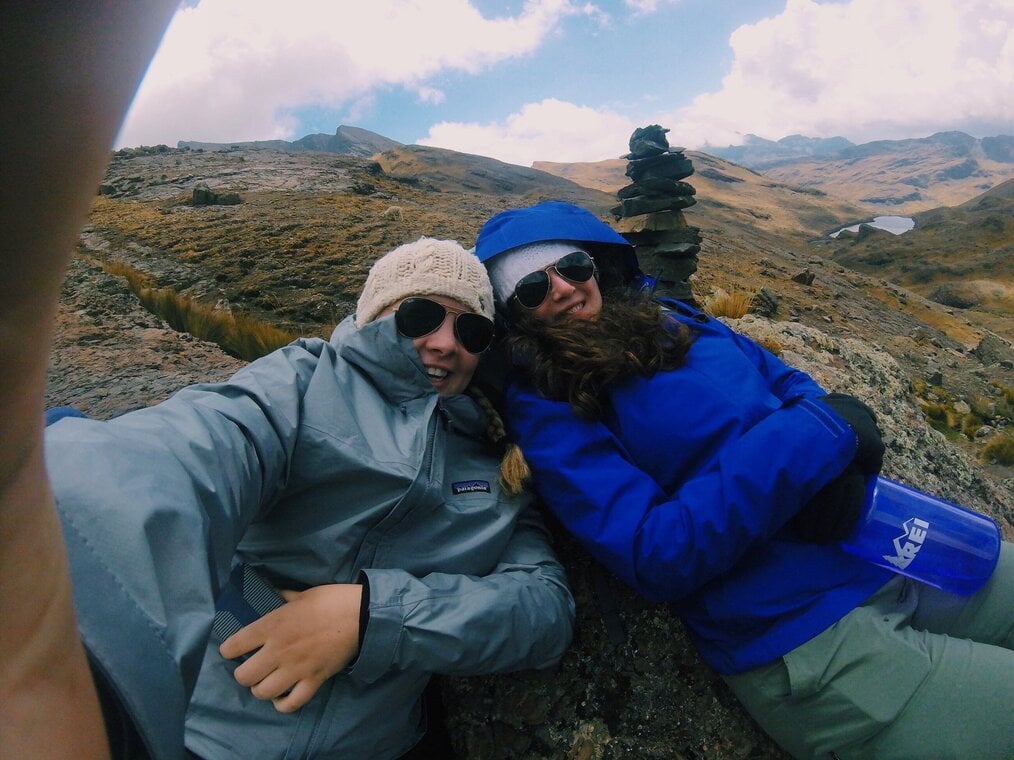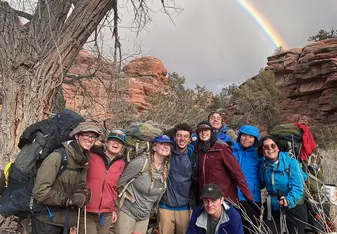How to Plan a Gap Year in 2024

Learn how to plan the ultimate gap year from experiential and gap year experts who have advising students for over 25 years!
Published December 8, 2023
Key Takeaways 🔑
- Your gap year is uniquely yours. To craft the gap year that is right for you, consider your interests, physical and mental health needs, desire for peers or structure, and budget.
- Spend 5 to 15 minutes a day planning your gap year. Take notes as you compare program websites, read alumni reviews, and attend webinars.
- Gap years don’t have to be international. There are plenty of exciting programs here in the U.S.
- Outline your budget and costs early, that way you’ll have more time to plan, earn, and save. Plenty of gappers work during their gap years too!

The early stages of planning a gap year may be a bit overwhelming: you're not sure what you want to do, there are so many options to choose from, none of your friends are taking gap years, and the costs seem high. Understandably, hopeful gappers can often get discouraged early in the planning process.
If that sounds like you, or your high school or college student, you've come to the right place! As experiential and gap year experts advising American students for over 25 years, we know that, equipped with some effective strategies and concrete action steps, you can navigate your questions and options to plan a fun and fulfilling gap year.
To Learn More About How to Take a Gap Year

You don't have to travel the world (or even far from home) to have an inspiring and life-changing gap year. In fact, recent COVID-19 related travel restrictions highlighted plenty of amazing programs and experiences that can be accessed right here in the U.S. From wilderness adventures and urban internships, to community service placements and social justice programs, exciting learning opportunities can be found all across the country.
Taking a gap year is about stepping out of a space that is comfortable for you, and instead, immersing yourself in your ‘stretch zone’. It can be a great time for you to build confidence and independence as you transition into the adult chapters of your life.
Prefer to live at home for part of your gap year? Why not couple this with a full-time job and commit to learning how to cook a few meals for your family each week? Have a relative that lives across the country and has an extra bedroom? See if they have a lead on an internship or a volunteer placement and spend three months living with them.
Want to explore another region of the U.S. more independently? Work exchange options on farms, ski mountains, and camps are available everywhere, and seasonal employees are always needed during the busy seasons. This is all to say that if living and learning in the States appeals to you during your gap year, you've got some great options to choose from!
Advantages of a gap year in the U.S.
- Cost: Domestic experiences generally have lower associated costs than going abroad. Even if you select a fee-based gap program, inevitably you’ll pay less for flights and get to avoid the costs of a passport, visas, immunizations, and travel insurance.
- Health Considerations: Access to consistent and high-level medical care is far more predictable in the United States than in many parts of the world. Staying domestically is also generally associated with lower exposure to tropical diseases and the need to incorporate unfamiliar prevention regimes into our travels.
- Stretch v. Stress: Staying Stateside often allows us to focus our ‘stretch zone’ on engaging in a new environment or skill rather than tackling those factors and a new language or significantly different cultural norms. By limiting the challenges of the experience to one or two elements, we are more likely to integrate learning in real time.
- Work: It comes as a surprise to many potential gappers that it is difficult for an 18-year old to be legally employed outside of the U.S. American citizens have a much easier time finding paid work here than they will abroad, and can generally save on housing costs by living with family or friends.
Along with many independent opportunities to live, travel, and learn in the U.S., there is also an incredible array of organized and facilitated gap year programs one can join!
Explore Gap Year Programs in the U.S.
13 reviews

Dynamy Internship Year
96 reviews

HMI Gap Semesters: Adventure, Conservation & Leadership in Wild Places
16 reviews

Gap Semester in New Hampshire. Farm, Nature Connection, Community Living
separator_solid
Planning an International Gap Year

If traveling outside of the U.S. is high on your bucket-list, the options are almost endless. With vaccines and boosters widely available, and many countries adopting strict masking and distancing guidelines, many international destinations are open to American travelers. If you do decide to venture abroad, be sure to monitor your destination’s requirements for entry (especially around COVID) throughout your planning and before departure.
Immersing yourself in another culture and/or language setting can be one of the most rewarding experiences of taking a gap year. Not only do we build empathy when we step into the daily rhythm of someone else's life, we also cultivate curiosity that helps us reflect on our own life through new lenses. Whether you want to live with a homestay family, challenge yourself in an international adventure setting, volunteer for a grass-roots organization, or clarify your career path through an internship, traveling abroad is almost always a remarkable learning experience.
Crafting a gap year abroad takes pre-planning and a spirit of adventure. Set yourself up for success by wading into the ‘shallow end of the pool’ to start and making sure that you have lots of good support in place. Consider having a safety net upon arrival: pre-book your first couple of nights’ lodging, change money and get a working sim card at the airport, and take time to get your bearings before you journey further afield.
Similarly, offer yourself a couple days buffer between your experience and your return home so that you can process and decompress. Finally, while a great plan affords a lot of comfort, it’s equally important to have the courage to be spontaneous with unexpected opportunities, which often lead to some of the most memorable experiences while traveling.
Tips for selecting your international travel destination
- Cost: Flights, transfers, passports, visas, travel insurance, lodging, meals, and excursions can quickly take a huge bite out of any budget. Get clear on your priorities and what you value before you depart. For example, if you can handle three layovers to save a few hundred dollars on your flight, that money is now available for other things you value more. Shoe-string travel is an art form. Channel your inner Bansky!
- Health Considerations: Whether you are traveling to a remote part of the globe or on a selfie-mission at the Eiffel Tower, one of the biggest challenges for travelers abroad is understanding the systems for accessing health care. Do research before you go, ask locales for advice, and, under all circumstances, carry travelers insurance and know how to activate it! Additionally, a little prevention goes a long way. Small injuries and illness can disrupt even the most memorable journey.
- Stretch v. Stress: During your gap year abroad, you may find yourself tempted to try many new and exciting things all at once, however, too much unfamiliarity can be overwhelmingly stressful and push us out of the space where we can learn or are able to grow. Find balance in your travels and have your first gap experience offer both components that you feel confident in, as well as those that stretch you. Once those ‘stretch’ areas feel more familiar, you can continue to add in more challenge.
- Work: For most Americans on a gap year, ‘working abroad’ generally looks like one of two things: 1) Getting a Working Holiday Visa to get a minimum wage job in Australia or New Zealand or 2) committing to a work exchange position such as being an au pair that provides housing and food in exchange for child care. Whether you make a little cash to offset travel expenses or save on your spending with a cost-neutral opportunity, working abroad is a great way to meet locals and really feel like you are a part of the community.
There is an extensive catalogue of meaningful international travel experiences open to gap year students.








